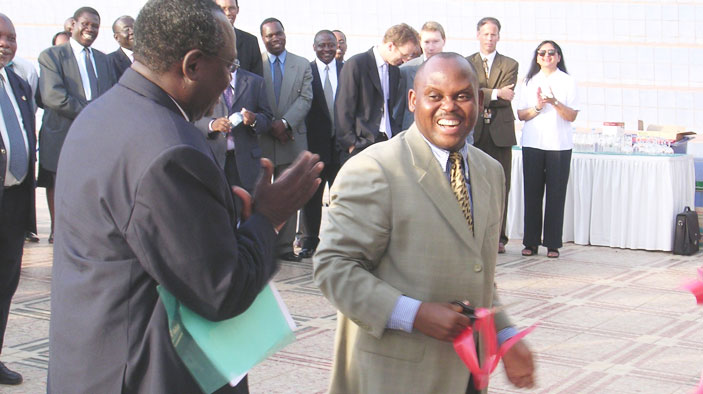Uganda—Deregulation—Support to the Legal and Regulatory Environment for Business in Uganda (Phase I, II)
Client: Foreign, Commonwealth & Development Office
Duration: 2000-2007
Region: Sub-Saharan Africa
Country: Uganda
Solutions: Economic Growth
Significant achievements have been made in the past decade in revitalizing the Ugandan economy, but poverty levels remain high. The formal private sector has grown, but still comprises a low proportion of the total economy, and its capacity to grow further and faster is held back by weaknesses in the regulatory environment.
From 2000 to 2003, DAI managed the former U.K. Department for International Development (now called Foreign, Commonwealth & Development Office)-funded Deregulation project in Uganda, designed to improve the regulatory environment for business growth. The second phase of the project (2003 to 2007) focused on creating national capacity for regulatory best practices in Uganda. The project team worked closely with senior civil servants, Members of Parliament, business leaders, and civil society organizations. The project developed a holistic and inclusive approach to better regulation: blending the team’s experience in economic impact appraisal with social cost-benefit analysis and environmental impact assessment, and bringing a wider range of stakeholders into the consultation and public debate process.

Sample Activities
- Introduce regulatory impact assessment into government policy processes.
- Raise awareness and implement public education campaigns.
- Build capacity of civil society organizations and business organizations to influence the policy agenda.
- Facilitate reductions in administrative and regulatory barriers faced by businesses while protecting important social and environmental standards.
Select Results
- Produced a streamlined business registration system pilot in Entebbe that reduced compliance costs for enterprises by 7.5 percent and raised registration numbers and fee revenues by 40 percent, while reducing the cost of administering the system. The pilot also reduced opportunities for corruption and resulted in improved relations between business and the local authority.
- Made a case for reform by quantifying the cost to government and the private sector of retaining the status quo.
- Identified principles based on international benchmarks of good licensing practice, explaining what the lessons from other countries might mean for Uganda.
- Implemented the reformed licensing system through public awareness programs for entrepreneurs and training activities for central and local government officials.
RELATED CONTENT:
Türkiye—Technical Assistance for Capacity Enhancement for Development and Implementation of Smart Specialization Strategies
The Technical Assistance for Capacity Enhancement for Development and Implementation of Smart Specialization Strategies in Türkiye’s Regions (CEDIS3) will strengthen the capacity of national and regional actors to formulate and implement Smart Specialization Strategies.
Read More